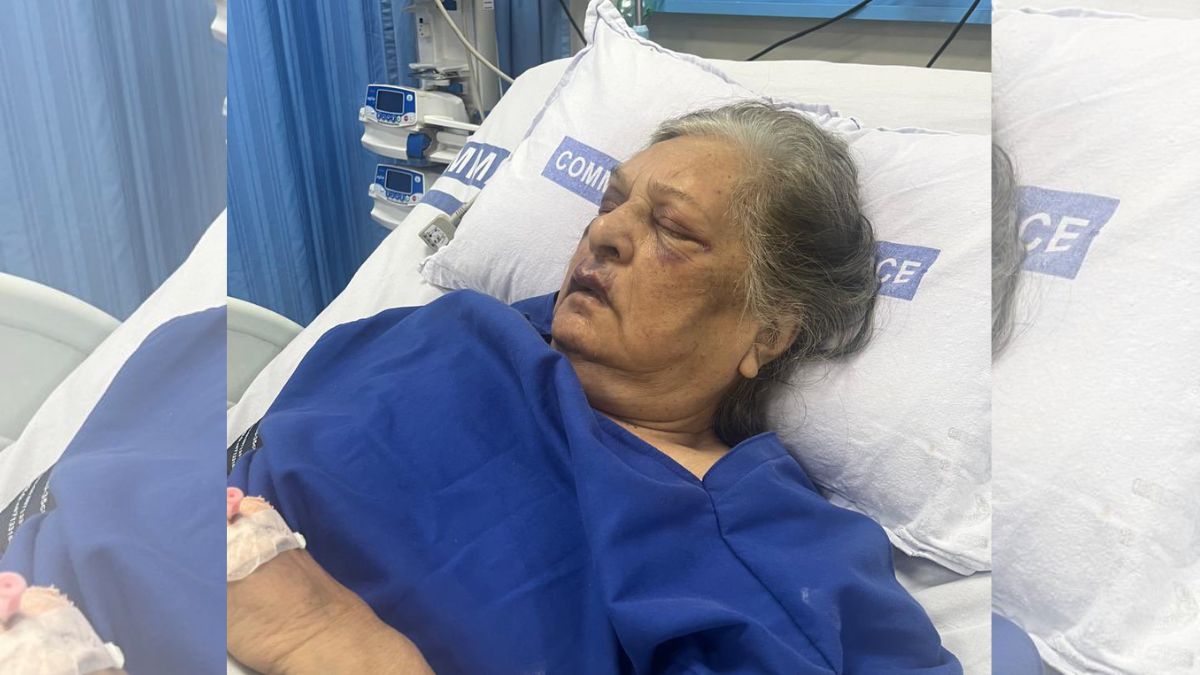Air India has courted controversy as an elderly passenger landed in ICU due to a fall after being allegedly denied a wheelchair at the Delhi Airport. The 82-year-old woman, with restricted mobility, was forced to walk after the airline did not provide a wheelchair booked by her family in advance.
Air India has responded to the incident and expressed “concern” after the octogenarian’s granddaughter took to X to narrate the ordeal. As this puts a spotlight on the issue of assistance for elderly passengers at airports, what do the rules say?
Let’s take a closer look.
What happened?
Raj Pasricha, 82, had to be hospitalised due to a fall after Air India failed to arrange a wheelchair for her at the Delhi airport.
As per The Hindu report, on March 4, the octogenarian and her family arrived at the Indira Gandhi International Airport in Delhi at 3:30 pm for a flight to Bengaluru.
A family member approached the assistance desk outside the airport for a wheelchair, waiting about 20 minutes. However, after not being provided a wheelchair, the elderly woman, with help from her grandson, started walking from the car drop-off point to the airport entry gate, her granddaughter Parul Kanwar told the newspaper.
“The staff at the desk expressed his helplessness and we were told that they were arranging wheelchairs as per availability and we were on a waiting list. Our flight departure time seemed to bear no significance or urgency,” she added.
In a post on X, last edited at 2 am on Friday (March 7), Kanwar wrote that her grandmother managed to enter the airport on foot but even after that was not allotted a wheelchair. “Ultimately, her legs gave way, and she fell - she fell in front of the Air India premium economy counter. Not one person stepped in to help. We requested someone to help get first aid - no help (sic).”
The granddaughter also shared Pasricha’s ticket online that mentions a special request for a “wheelchair to aircraft door”, which was confirmed by the airline.
She told The Hindu that the 82-year-old woman sustained head injuries, a bleeding nose, and a cut on her upper lip and tongue after falling “face flat”.
“At this point my husband and I approached Air India staff, including those at the check-in counter, for medical aid and none was forthcoming. We were instead told to walk to the medical room and seek first aid ourselves. After this, a wheelchair was arranged and her boarding expedited, but she continued to bleed throughout the flight,” Kanwar said.
The granddaughter mentioned the injured woman was treated by a doctor only at the Bengaluru airport and administered two stitches. She suffered a brain stroke and has been in ICU for the past three days at the city’s Indian Air Force Command Hospital, as per The Hindu report on March 7.
The elderly passenger’s family has lodged a complaint with the Directorate General of Civil Aviation (DGCA) and the Ministry of Civil Aviation and written to Air India CEO Campbell Wilson.
Responding to the online post by her granddaughter, Air India said it was “concerned to note” the incident and wished the woman a speedy recovery. The airline said it was “actively working on the concern” and would share details at the earliest.
What are Air India’s rules about wheelchair?
Air India’s website states that passengers who need a wheelchair can inform the airline at the time of reservation, ticketing, or reconfirmation of the booking.
“Travellers are requested to pre-book wheelchairs during booking or ticket issuance to avoid last-minute delays and the unavailability of wheelchairs,” it says.
For old and infirm travellers and those with a medical condition, the wheelchair is free of cost.
Air India asks passengers who are medically unfit and require a wheelchair to submit the Medical Information Form (MEDIF) form filled by a physician at the nearest Air India office.
The request will be verified by Air India’s medical officer, a process that takes at least 72 hours.
What does DGCA say?
According to the aviation regulator DGCA, once passengers with disability or reduced mobility, who have a valid booking, report at the airport, an airline “must provide assistance to meet their particular needs and ensure their seamless travel from the departure terminal of the departing airport up to the aircraft and at the end of the journey from the aircraft to the arrival terminal exit, without any additional expenses”.
The Civil Aviation Requirements (CAR) lay down rules for assistance to flyers with disabilities and reduced mobility.
“No airline shall refuse to carry persons with disability or reduced mobility and their assistive aids/devices, escorts and guide dogs including their presence in the cabin, provided such persons or their representatives, at the time of booking, inform the airline of their requirement(s)," as per paragraph 4.1.1.
In 2022, the DGCA made it illegal for airlines to decline boarding to any person with a disability. This came after a specially abled child was not allowed to board an IndiGo flight.
The CAR’s rules were amended to state: “ Airline shall not refuse carriage of any person on the basis of disability. However, in case, an airline perceives that the health of such a passenger may deteriorate in-flight, the said passenger will have to be examined by a doctor- who shall categorically state the medical condition and whether the passenger is fit to fly or not. After obtaining the medical opinion, the Airline shall take the appropriate call.”
Last February, Air India was fined Rs 30 lakh after an 80-year-old passenger collapsed at Mumbai airport and later passed away after he was not provided a wheelchair. After the tragic incident, the DGCA had issued an advisory to all airlines to ensure availability of adequate wheelchairs.
With inputs from agencies
)